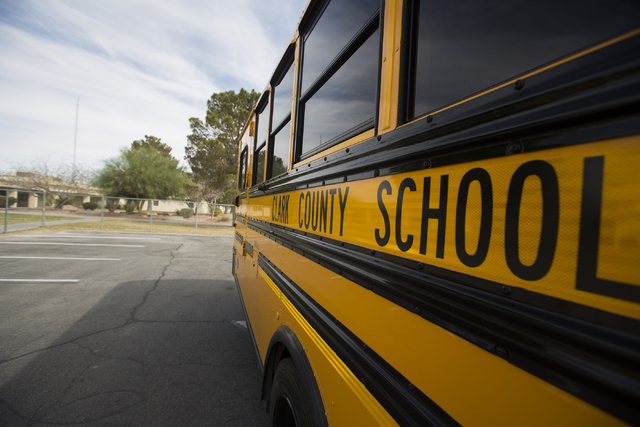Bill would allow Nevada cities to form own school districts

CARSON CITY — A bill that would allow incorporated cities to form their own school systems by carving out a piece of a larger district using existing local government boundaries had a hearing Monday in the Assembly Education Committee.
Assembly Bill 394 from Assemblyman David Gardner, R-Las Vegas, would require a detailed analysis on issues ranging from transportation to payroll before a district, called a precinct, could be approved by the state Board of Education. The bill would allow a precinct to use the services of the larger district to address some issues, such as providing transportation.
Gardner’s bill would allow a city council to move to create an independent school district. It would not mandate a breakup of a district like the Clark County School District, the fifth largest in the United States.
“It really comes down to trying to make our school districts more accountable and closer to the parents,” he said.
Gardner has proposed an amendment to his bill to address situations where an island of an unincorporated county could be part of a new district as well to avoid an “absurd result.”
One city that would likely take advantage of such a bill is Henderson, where some officials and parents for many years have sought the ability to create a separate district.
Henderson Mayor Andy Hafen submitted testimony to the committee in support of the bill.
“We believe that providing a high-quality public education for our children is the most critical investment we can make for the future of our community and our economy,” he said.
Gov. Brian Sandoval in his State of the State address supported school district deconsolidation, saying he would seek such legislation. Gardner’s bill would also allow consolidation of school districts in rural counties if they agreed to do so.
Some members of the committee asked if creating new districts would create “haves” and “have-nots” if the more affluent city of Henderson formed its own district. There were also questions about how bond funding would be addressed and how specialized magnet schools located within different local government boundaries would accommodate students from other jurisdictions.
But Gardner said studies show that deconsolidating large school districts ends up benefiting lower socio-economic areas.
In support of his bill, Magdalena Martinez, director of education programs at UNLV’s The Lincy Institute, said several studies suggest that large districts adversely affect student achievement. A 2003 study found that large districts were unable to adapt to local needs, she said.
But changing governance alone won’t produce improved results, Martinez said. Other reforms are needed as well, she said.
Pat Skorkowsky, superintendent of the Clark County School District, testified in opposition to the bill, saying there are too many “what ifs” in the measure that likely would lead to litigation.
He also challenged the notion that smaller districts improve student achievement, noting that the studies cited by Martinez do not have any empirical research to support their findings.
If lawmakers want to look at deconsolidation, it has to be done very deliberately, Skorkowsky said.
Efforts by Henderson residents to form their own school district date back 15 years. Former state Sen. Sandra Tiffany of Henderson fell just short of putting a deconsolidation measure on the state ballot.
The hearing was continuing but no immediate action was expected on the measure.
Contact Sean Whaley at swhaley@reviewjournal.com or 775-687-3900. Find him on Twitter: @seanw801.

RELATED STORIES
Sandoval challenges legislators to adequately fund education
Nevada college aid bill lauded at state Senate hearing
\Assembly to consider private school scholarship program
Bill would provide grants to low-income students
Teachers who have sex with students would have to register as sex offenders
Controversial Nevada school bond bill signed into law
Nevada school bond bill clears panel, heads to Assembly floor
See all of our coverage: 2015 Nevada Legislature.












